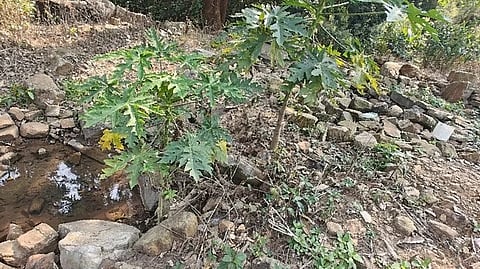Scientists at UoH create geranium leaf biochar to enhance soil quality
HYDERABAD: Researchers at the University of Hyderabad (UoH) have developed a method to upcycle waste geranium leaves, an often-discarded byproduct of the essential oil industry, into a value-added material that can rejuvenate soils and enhance plant growth, reports Meghna Nath of The New Indian Express.
The study, titled “Upcycling of Waste Geranium Leaves into Biochar for Soil Amendment,” was carried out through a collaborative effort between the School of Life Sciences (SLS) and the School of Engineering Sciences and Technology (SEST) at UoH. The project was jointly led by Prof Appa Rao Podile (SLS) and Prof Dr-Ing VVSS Srikanth (SEST).
The interdisciplinary team combined expertise in plant sciences and materials engineering to design an efficient process for transforming geranium residues into biochar, a carbon-rich product known for its ability to enhance soil fertility and sequester carbon.
The research, recently published in a special issue of the journal Biomass and Bioenergy (Elsevier, November 2025), demonstrates how scientific innovation can convert agricultural waste into a powerful tool for environmental sustainability.
According to the researchers, the process also has substantial economic potential, as geranium residues are abundant and inexpensive. The energy requirement for the process was modest (around 9 kWh per batch), and the estimated production cost per kilogram of biochar was significantly lower than many commercial biochar products available globally.
The project received financial support from the Department of Biotechnology (DBT), Government of India. The team also used advanced analytical facilities supported by DST-FIST (Department of Science and Technology – Fund for Improvement of S&T Infrastructure). The authors also acknowledged support from the Institution of Eminence (IoE-UoH) programme.
This investigation not only contributes to India’s bioeconomy and waste-valorisation goals but also provides a scalable model for the sustainable management of aromatic crop residues.


